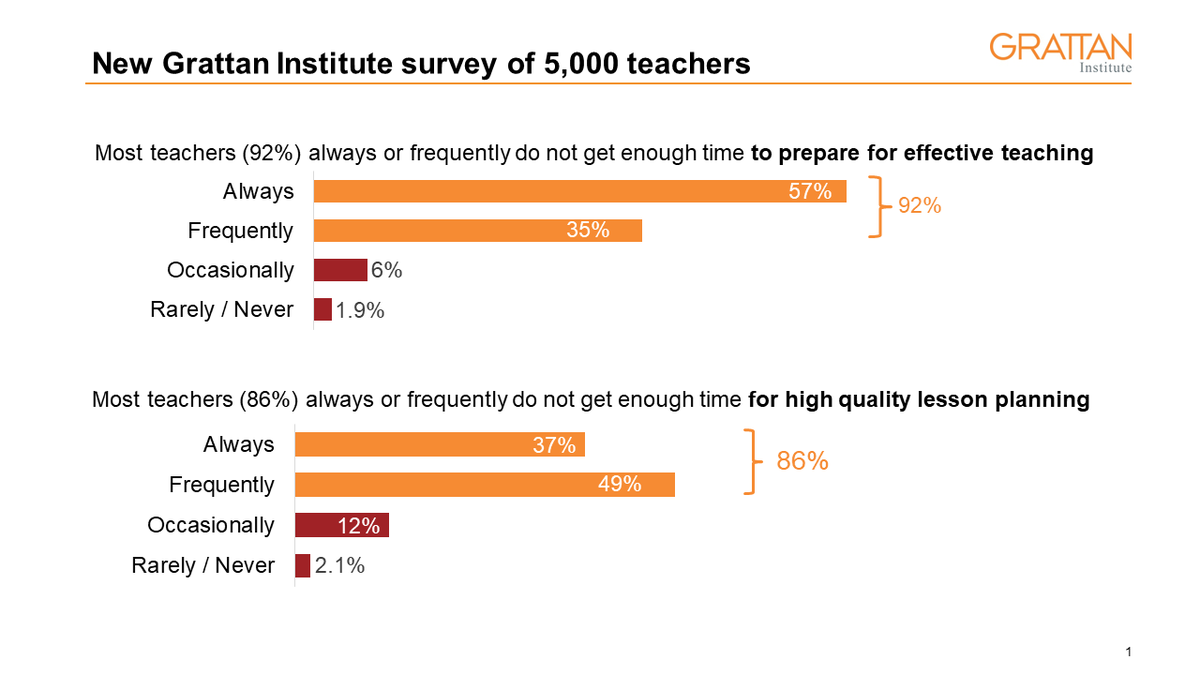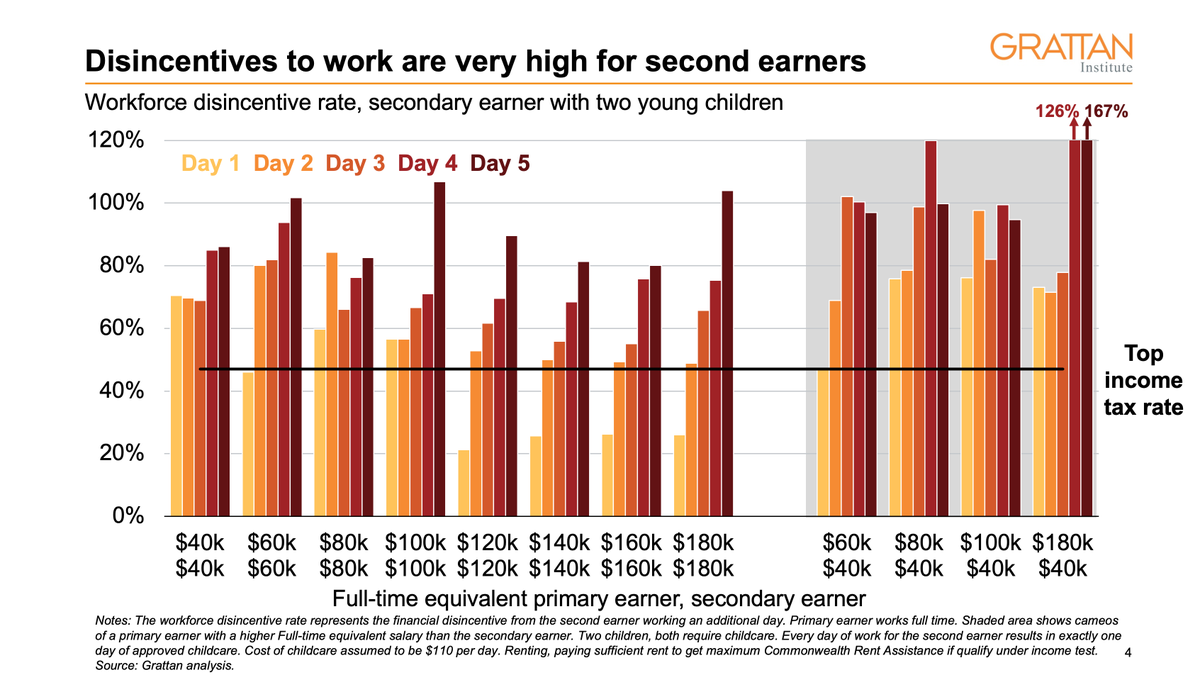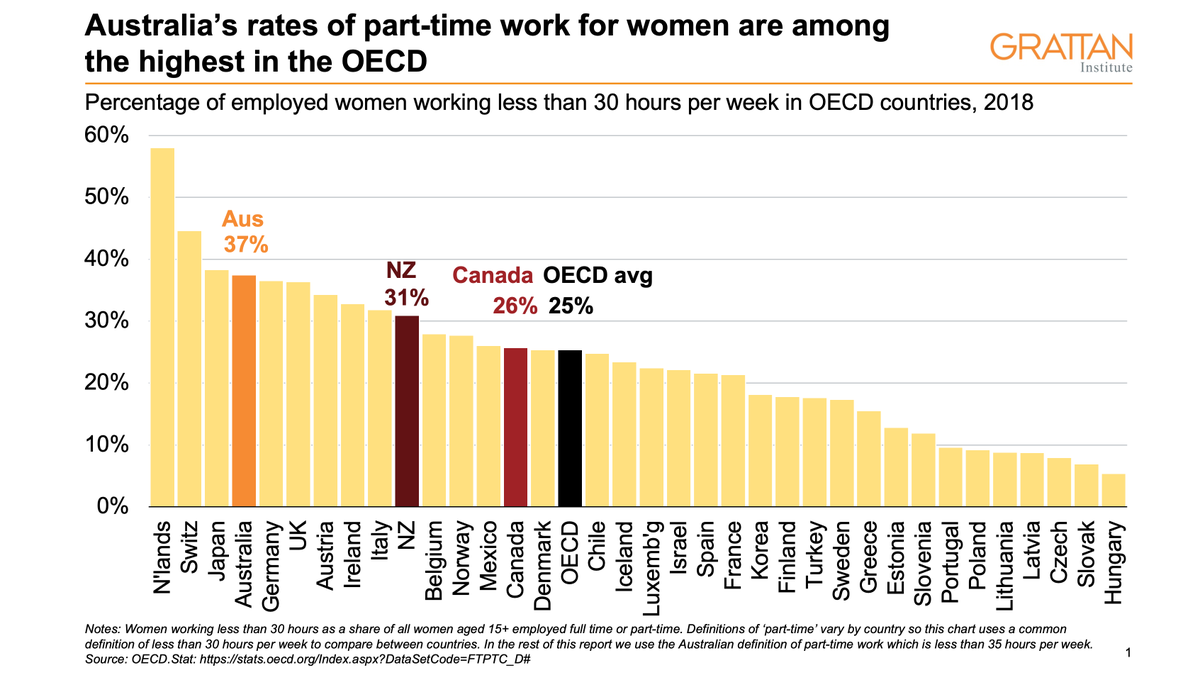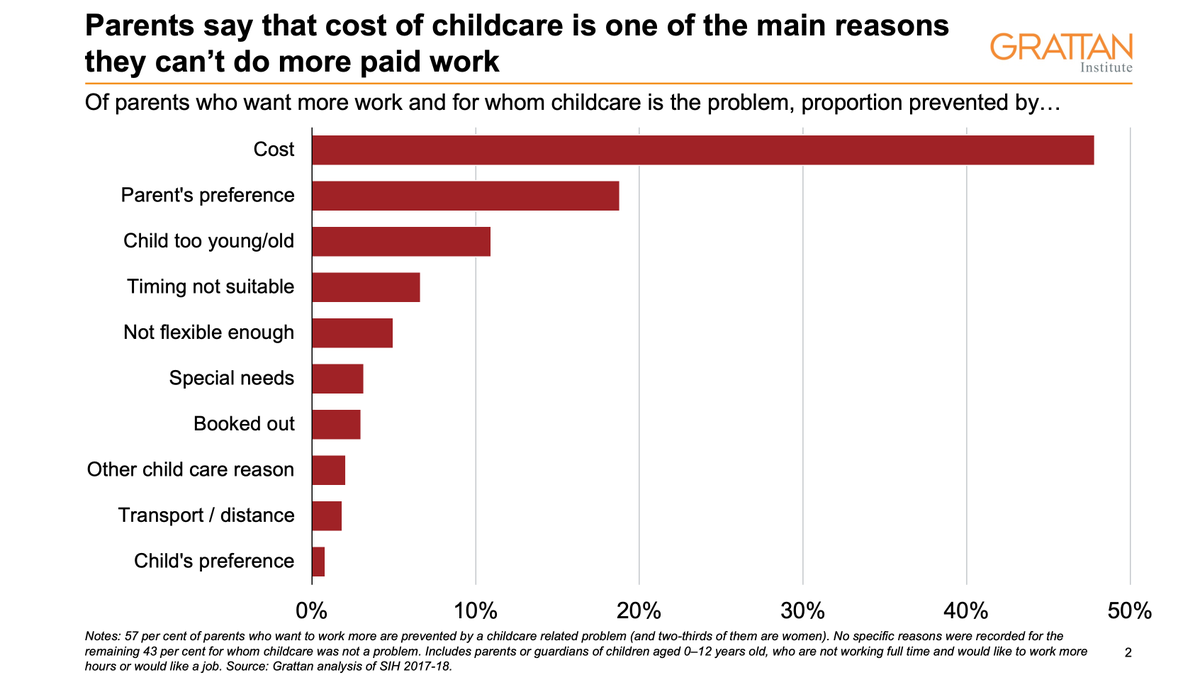
1/ We’ve just released our pre-election recommendations for the next federal government – whether Liberal or Labor.
A thread on the key takeaways from our 2022 Orange Book. Be warned, it’s epic… #AusPol2022
A thread on the key takeaways from our 2022 Orange Book. Be warned, it’s epic… #AusPol2022

2/ We’re calling for major tax reform. The government should increase or broaden the GST and better target currently wasteful tax concessions (such as the 50% CGT discount and super tax concessions) to fund income tax cuts. This would boost incomes for Australians over time.
3/ The high cost of childcare creates barriers for women to take up more paid work. Reducing out-of-pocket childcare costs and boosting parental leave (including for Dads and partners) would free up families’ choices and boost workforce participation, particularly for women. 

4/ To arrest declining student performance, teachers should be given more time to prepare for class, and the next federal government should commit to doubling within 10 years the proportion of high achievers who choose teaching as their career. #aused 

5/ Australians delay or skip getting much needed healthcare due to cost. The government should ensure patients pay less out of their own pocket when they see a medical specialist or the dentist. #health 
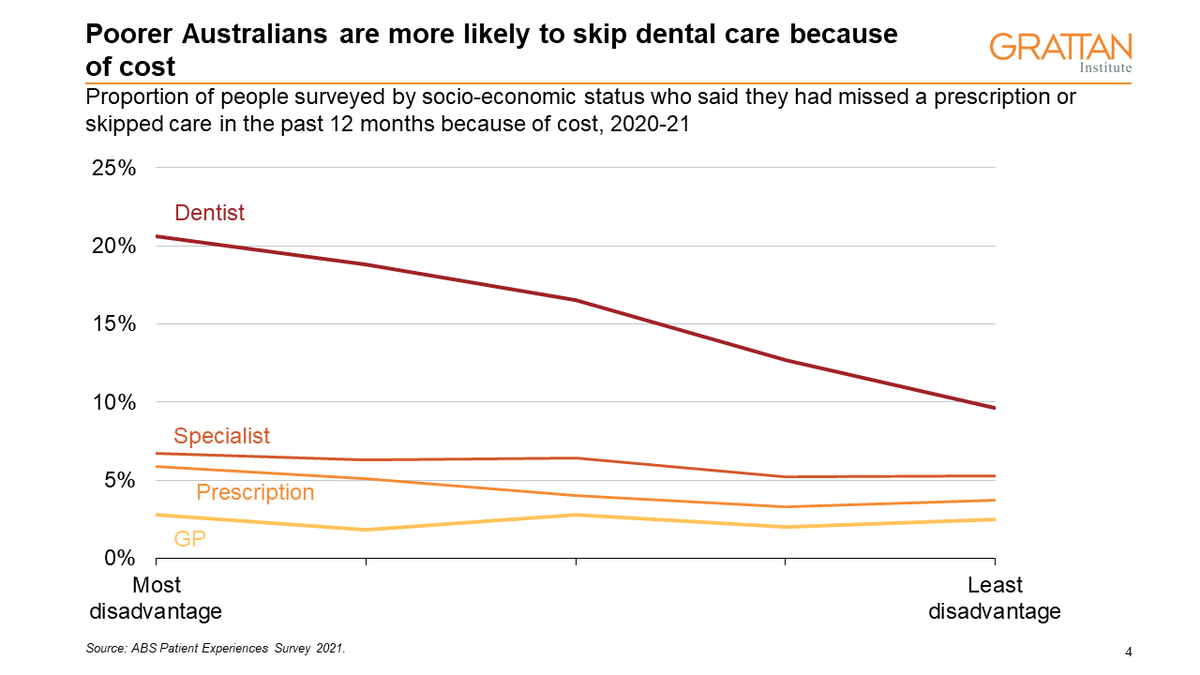
6/ To assist people suffering poverty or homelessness, the government should boost Commonwealth Rent Assistance by at least 40 per cent and JobSeeker by at least $75 a week. 
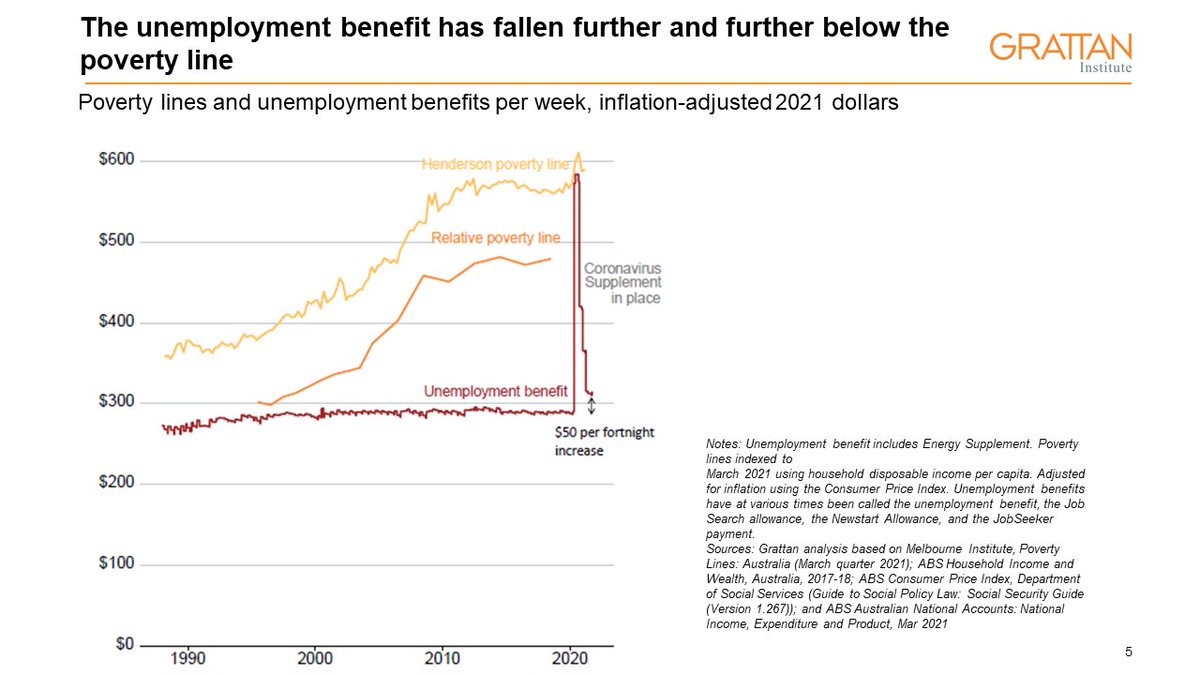
7/ Housing costs are another cause of growing inequality and homelessness. The federal government should help boost the supply of social housing, establish a Social Housing Future Fund, and create a national shared equity scheme. #housing 

8/ As Australia pursues its target of net-zero carbon emissions by 2050, the government should collaborate with industry in renewable energy and critical minerals, and target emissions-reduction policies across the economy. This would create jobs in these industries. #Climate 

9/ To boost the bang for buck from transport spending, the federal government should fund only nationally significant infrastructure projects, avoiding projects that are poor value for money. #infrastructure 
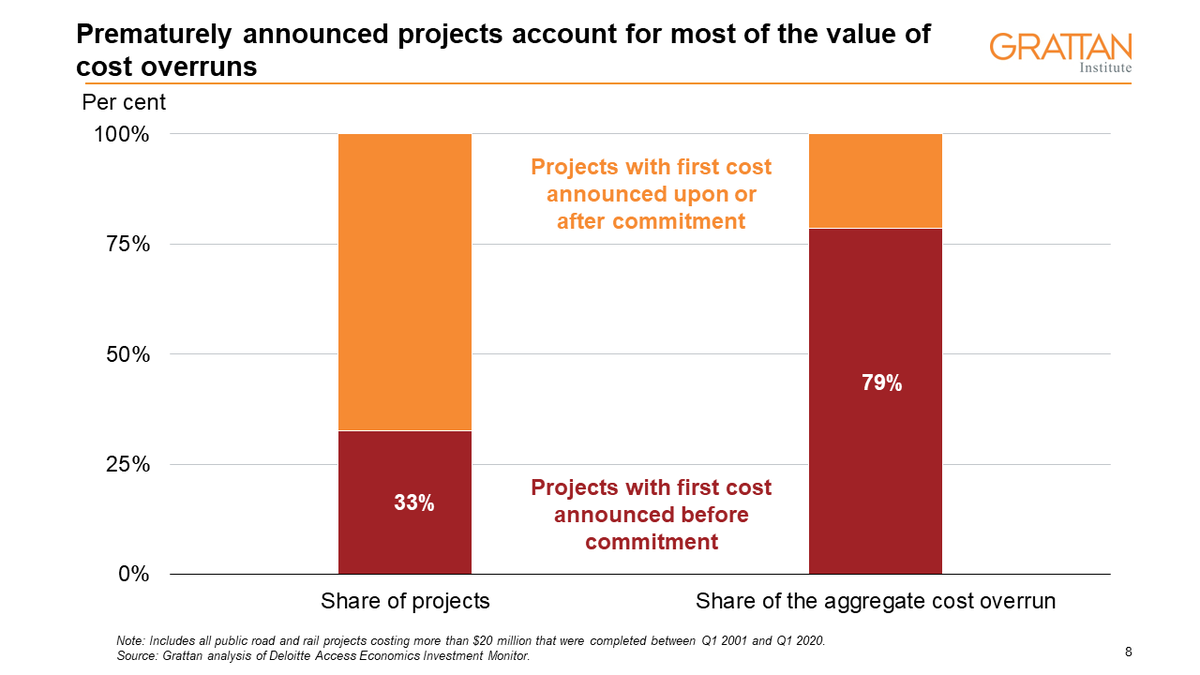
10/ Finally, to revive Australians’ trust in their political system, the next government should tighten the rules on political donations and lobbying, and create an anti-corruption commission with sweeping powers. 
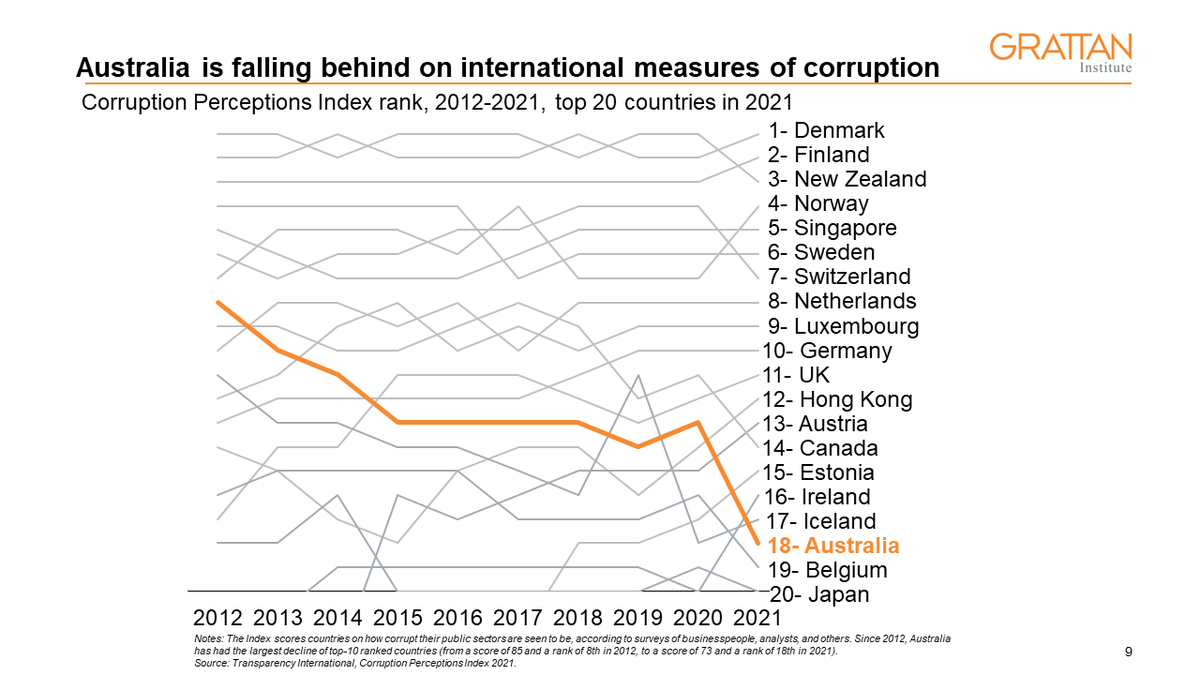
11/ No government could implement all these reforms in a single term. But tackling them over 10 years? It could transform Australia into a country with ⬆️ incomes, ⬇️ poverty, better-quality and more efficiently delivered services, a liveable climate, and a stronger democracy.
12/ All these recommendations and more can be found in Grattan’s 2022 Orange Book by @danielleiwood @BrendanCoates @MarionTerrill @tony_r_wood @stephenjduckett @hunter_jordana @EmslieOwain grattan.edu.au/report/orange-…
• • •
Missing some Tweet in this thread? You can try to
force a refresh


